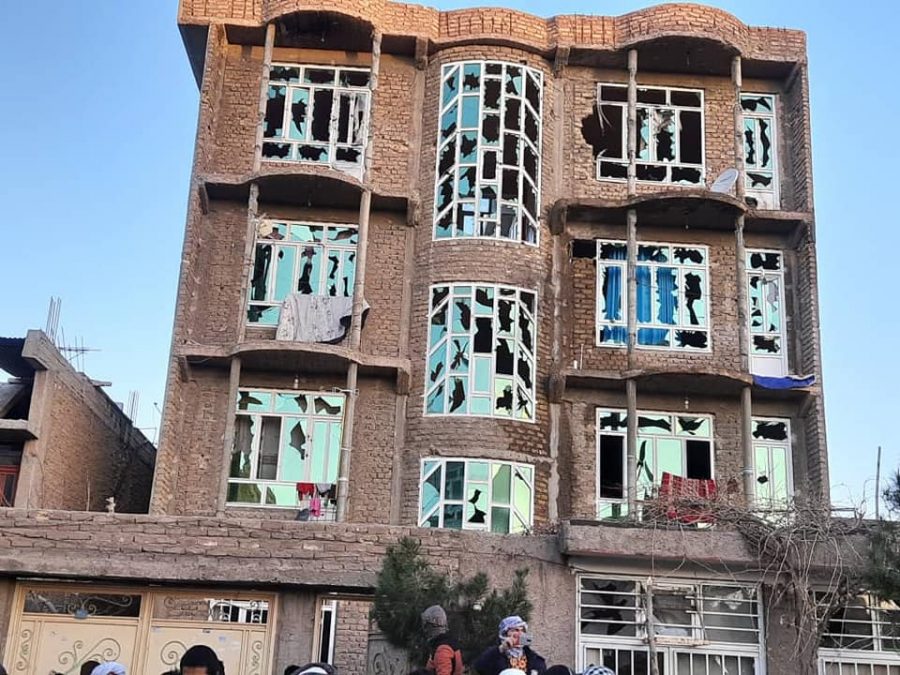Hazara International: While peace talks in Doha remain in a deadlock, Hazara people continue to bleed in Afghanistan. The Hazaras, who have given unconditional support for Afghanistan’s democratization in the last two decades, are currently facing existential threats not only by the terrorist groups but also by the very government they supported with their political participation, taxes, and lives. Attacks on the Hazaras by the Afghan government, the Taliban, and other unknown terrorist groups are mounting.
Afghanistan’s government responsibilities in Human Rights abuses
Last January, the government sent troops to Behsud District under the pretext of introducing the district governor. Seeing many troops, the local people saw them planning to remove the famous anti-Taliban Hazara commander who has been able to wall off against the Taliban advances in the area. On Friday, January 29, the people protested peacefully, but policemen commanded by Maidan Wardak Police Chief Allahdad Fedaee, opened fire on the peaceful protesters, killing 11 people and wounding dozens of others. The police also kept 68 protesters as hostages, including the wounded civilian, some of whom died in captivity the same night.
To cover its gross human rights violation, the government soon resorted to spreading misinformation calling the peaceful protester armed men. The government also blacked out the telecommunication in the area for two days to prevent the people from uploading photos and other evidence of its crimes. A few days later, a video surfaced on social media showing the police firing at the peaceful and unarmed civilians with M249 & PK machine guns and running them over by Humvees. Later on, in a statement, the Ministry of Interior acknowledged firing at the unarmed civilians mentioning it would suspend the Maidan Wardak Police Chief. However, Allahdad Fedaee remains untrailed by the high court and occasionally seen on national TVs spreading misinformation against the Hazaras.
On March 3, attempting to capture a Hazara community leader and his guards, the government forces opened fire at the Hazara civilians of Jebrael township in Herat, killing two and injuring 39 people, including women and children.

On this occasion, the government forces used heavy weapons such as DShK and PK machine guns. They also used grenades and RPG-7 in a crowded residential part of the town, causing pregnancy loss among terrified pregnant women.
The government resorts to such a dramatic and disproportionate use of force against a local strongman in a city where a few days ago, a radical clergyman named Mawlawi Ansari denounced the government religiously. The clergyman asserted that supporting the government, fighting for it, or penning words in its supports amounted to the deeds of the infidels. Though enumerating the multiple crimes Ansari and his relatives committed in the city, the provincial government did nothing more than resorting to few rhetorics. Earlier, Kamran Alizai, the head of provincial council in Herat marched with over 1000 of his illegal armed supporters to the provincial police headquarters forcing the Police Chief to resign. Alizai received no reprimand for his terrorizing the entire city whatsoever.
These incidents show a different attitude towards what is perceived as a threat by the central government. An attitude that risks exacerbating the already fragile social fabric of the country. While harsh measures are taken against many Hazara individuals who seem to defy the central power, criminal gangs, and former war criminals such as Gulbidin Hekmatyar and Mawlawi Tarakhil who threaten the capital city, Kabul, remain undeterred.
The Taliban rampaging Hazara homeland
Emboldened by the government’s attempt to remove Alipoor from Behsud and its apathy towards the Hazaras, the Taliban launches repeated attacks on the Hazara villages and towns across the south and eastern borders of Hazaristan. Last week the group attacked Sarchishma township of Jalrez District, Maidan Wardak, killing five local police forcing the people to leave their homes. The township remains under the control of the Taliban and the government led by Ashraf Ghani has made no attempt to retake it. In the meantime, since January, more than 50 Hazaras remain Taliban’s hostage in the Qarabagh district of Ghazni province. According to the local people, the Taliban in Ghazni are Ghazni locals who’ve made a business out of taking hostage the Hazara civilians.
They ask for heavy ransoms for the release of each captive. The local Hazara elders are negotiating their men’s release in the Taliban’s custody, but they no longer afford the ransoms. Hence the fate of Hazara hostages remains at the mercy of the notorious terrorist group that spares no moment in cutting their throats should ransom remain unpaid.
The Taliban turn on the Hazaras has intensified since 2018. The group launched a major attack on the Jaghori and Malistan districts of Ghazni province, killing hundreds of Hazara civilians and displacing thousands.
On March 3, unknown armed men brutally tortured and then killed seven Hazara workers of a plaster factory in Surkh-Rod district of the eastern Nangarhar province. The factory workers were reported to be from Bamyan province.
Last January, in a similar fashion, 11 Hazara coal miners were gunned down in Quetta city of Pakistan. This incident was widely covered by Pakistani national and international media that forced PM Imran Khan to meet with the aggrieved community and promise to prosecute the perpetrators. However, the killings of Hazaras in Afghanistan, such as the seven workers in Surkh-Rod, raise no eyebrows among the government officials and most of the national and international media leave these incidents unreported.
Hazaras now find themselves crushed between a government unable to protect its citizens, but ready to violently suppress any attempt of auto-defense, and a terrorist group known for a past (and a present) of ethnic cleansing. If the government of Afghanistan truly wishes to strengthen its national unity, it should start fighting those who really threaten its authority and not those who in most of the case are only striving to survive.